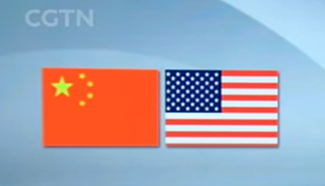TAIPEI, Feb. 10 (Xinhua) -- Hundreds of Uber drivers joined a motorcade in Taiwan Friday to protest against the authority's decision to slap huge fines on the company last week, which led Uber to suspend its services.
The motorcade, with cars sporting the company's logos or slogans such as "Legalize Uber," drove around the transportation authority's building. Several protesters also sat in front of the building, holding placards calling for a meeting with the chief transportation official.
The official did not show up, but a representative of the authority appeared and promised to schedule a discussion with Uber drivers within seven days.
Uber announced Thursday last week that it would suspend services in Taiwan starting Feb. 10 following the transportation authority's issuance of 11 fines for Uber, which totaled over 230 million new Taiwan dollars (7.4 million U.S. dollars).
Taiwan regards Uber's services as illegal, saying the company is not registered as a taxi service and, as such, allegations of tax avoidance have also emerged.
"We're not a taxi company so it's absurd to ask us to register as one. We are a smartphone application that connects people willing to share their ride with people needing one," Uber responded earlier in a statement. It also said it is subject to a levy but the supporting cross-border e-commerce bill is not in place.
The U.S.-based ride-hailing app entered Taiwan in 2013 and, up until the suspension, operated in four cities, including Taipei and Kaohsiung. It said it had provided 15 million trips, with more than 1 million people having downloaded the app and 16,000 citizens signing up as drivers.
Local taxi drivers accuse the firm of operating illegally, which has affected their business.
On Friday, Uber released a farewell letter saying it was unwilling to, and hoped it was not forced to, withdraw from Taiwan.
"The decision has affected more than 1 million people that rely on Uber, but these endless fines make it hard to survive in such an environment," it said.
In another statement released Friday, the Uber Taiwan team said they hope to restart conversations with the island's administration to find a way to allow ride-sharing to flourish.
"We will do everything we can," the statement read.
Driver Chang Sheng-kai told reporters that he hopes the administration will reconsider its policy.
"New good things need to be well managed rather than stopped," he said.
Another driver, Chan, 57, who asked only to be identified by his surname, explained, "We are here today to appeal to the administration to allow Uber to resume operation. I rely on it to make a living."
"I used to earn at least 45,000 new Taiwan dollars through Uber, driving for over 10 hours a day. Now I have no income, how am I going to afford the repayments on my mortgage and car loan," he said.
"I am in my late 50s, who will employ me?" he said.
However, taxi driver Lung Shin-yu said Uber's transportation service is illegal, and has no rights operating on the island.
"Uber is stealing our jobs, and most importantly, it does not pay any taxes," Lung said.
"Why don't these people just become a normal taxi driver?" said Lung.
Another taxi driver, Mr. Lee, said Uber had not affected his income, as many people in Taiwan prefer to hail a taxi on the side of the road.
There have been no opinion polls conducted about support for Uber's legalization.
Ride-hailing apps like Uber have been met with mixed responses globally, popular among the younger generation, but rejected by taxi drivers. Still they have managed to gain legal status in some areas including the Chinese mainland.
"Innovative economic models, of course, need to be supported, but the premise is fair competition," said Jessica Wang, from the think tank Taiwan Competitiveness Forum. "If ride-hailing services do not pay taxes and offer cheaper prices, that is unfair to taxi drivers."
She also noted that a lack of insurance and checks on drivers' criminal records also pose risks for passengers' safety and interests.
Chang Hsien-ping, an analyst with the Topology Research Institute, said Uber has had a major impact on the innovation of Taiwan's transportation industry and the spread of the sharing economy. Uber's payment manner and online hailing of cars will spur the taxi industry to follow the times, he said.














